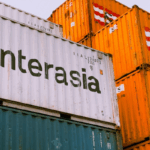The most gratifying thing about studying golden ages, like ancient Athens, Rome, Abbasid Baghdad, Song China, Renaissance Italy and the Dutch Republic, is that you can’t help but be inspired by the remarkable potential of mankind. Whether they are pagans, Muslims, Confucians, Catholics, Protestants or secular, a little bit of intellectual openness, economic freedom and international trade tends to unleash their creativity in a world-shaking burst of innovation and brilliance.
The saddest thing is that they all eventually decline and fall. As Edward Gibbon pointed out, the real question about ancient Rome is not why it fell but why it lasted so long.
Where does this leave us? We are living in the Anglosphere moment, which started with the Industrial Revolution in Britain, grew across the Atlantic after 1776 and eventually turned into a liberal world order after the Second World War.
Abetted by a revolution in communication, transportation and trade, for the first time in history a golden age was not constrained to one region and one civilisation. The whole of mankind has been touched by it. In 200 years, the share of people in extreme poverty globally has been reduced from roughly 8 out of 10 to fewer than 1 out of 10. Life expectancy has shot up from 30 to 74.
We have had a good run over these 200 years. But few golden ages survive longer than that. What happens now? There are ominous signs. For the moment at least, America seems to have lost interest in the world order and open global economy it built. Just like Germanic tribes and Mongol armies learned organisation and technology from the Romans and Chinese to defeat them, terrorist groups and hostile dictatorships are imitating our technology and are so able to pose a greater threat to us.
We should be able to deal with that. The broader West should be able to protect the liberal world order that has benefited us so much, until America starts suffering from fear of missing out and returns to the fold. In the long run, free societies are more innovative than closed ones. Even though China can come up with innovations in deregulated areas, Xi Jinping’s centralisation backlash is holding the economy back. Deepseek came from a quant hedge fund which was the result of previous liberalisation that the present Chinese leadership detests. Russia’s militarised, stagnant economy is smaller than that of the five small Nordic countries. If Europe can’t take Vladimir Putin on, we have only ourselves to blame.
Instead, the greatest risk is internal: that we lose the openness and dynamism that powers our economies and keep us creative. It seems incredibly difficult for societies to stay innovative over longer periods, since vested interests, regulations and protections of old structures and business models clog up systems. This gradually makes it harder for entrepreneurs and eccentrics to come up with disruptive solutions and methods.
Acute anxiety episodes don’t help. Golden ages tend to thrive on a broader culture of optimism. Innovation is difficult and controversial, and the results are never guaranteed. Therefore, you need a sense that there is hope and possibility, and you need role models around you who have shown the way, to make it seem like it is worth trying. Others to be inspired by, learn from, and to compete with.
Unfortunately, a series of shocks, such as financial crises, migration flows, the pandemic and geopolitical tensions, has created a sense in Britain and elsewhere that the world is dangerous and that we need to protect ourselves from it. In just a few years, we seem to have gone from what Thucydides described as the Athenian mindset of being open to acquiring something new, to the Spartan mentality of shutting the world out to preserve what one already has.
Fearful cultures often abandon intellectual curiosity and international trade and that often turns fear into a self-fulfilling prophecy, since it shuts off the sources of novel ideas, methods and technologies that could have helped them to deal with those problems.
I wouldn’t go so far as to say that we have nothing to fear but fear itself. That would be to underestimate armed raiders and bubonic plague. But an insular, suppressive angst deprives us of the tools we need to take them on.
There is a lesson for political leaders here. Cultures are spontaneous and unpredictable creatures, emerging from the intricate dance of millions of people, but elites can help shape and reinforce certain cultural currents and mindsets. Therefore, it matters tremendously if they emphasise hope and agency, and that life is in your hands, like leaders from Athens’ Pericles and the Renaissance Humanists to Reagan and Thatcher have done. Inversely, it also matters if they talk the language of resentment and aggrievance and that your problems are always somebody else’s fault, like many leaders today. If everything is hopeless, why even try?
The future, like ‘abroad’ in Evelyn Waugh’s ‘Decline and Fall’, is a place no one would want to go unless they were told it exists.
* Johan Norberg is a senior fellow at the Cato Institute and a writer who focuses on globalization, human progress and intellectual history. Norberg is the author and editor of more than 20 books, translated into more than 30 languages. They include In Defense of Global Capitalism, Progress: Ten Reasons to Look Forward to the Future, and Open: The Story of Human Progress. Both latter books were named by The Economist as a book of the year in 2016 and 2020 respectively.
Source: Capx











